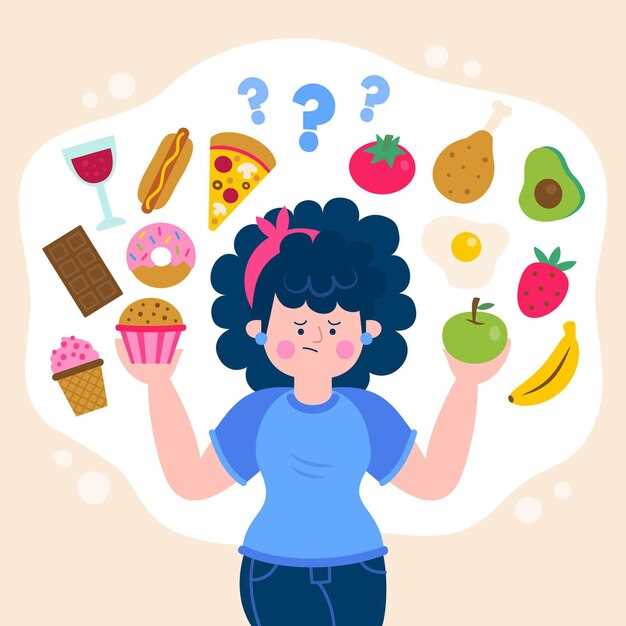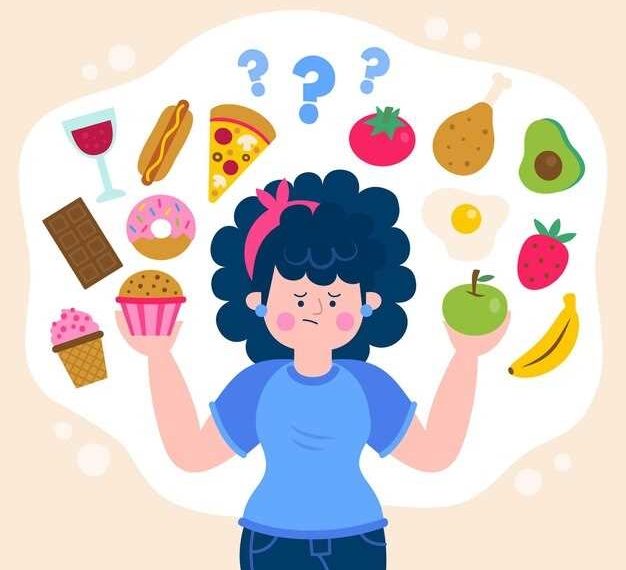The Role of Diet in Reducing Belly Fat – Foods to Eat and Avoid

When it comes to achieving a slimmer waistline and shedding those unwanted pounds around the midsection, the significance of a well-balanced and mindful diet cannot be overstated. The foods we consume play a pivotal role in determining the shape and size of our bellies, making it crucial to make informed choices that promote fat loss and overall well-being. By understanding the power of nutrition and incorporating the right foods into our daily routine, we can effectively target and reduce belly fat, paving the way for a healthier and more confident lifestyle.
Emphasizing the importance of a nutrient-rich diet
One of the key factors in reducing belly fat lies in the selection of foods that are rich in essential nutrients and low in unhealthy fats and sugars. By opting for nutrient-dense options, such as fruits, vegetables, lean proteins, and whole grains, individuals can fuel their bodies with the necessary vitamins, minerals, and antioxidants to support fat loss and promote a toned midsection. These wholesome choices not only provide a sense of satiety but also contribute to overall health, reducing the risk of chronic diseases and enhancing the body’s natural fat-burning capabilities.
Steering clear of detrimental dietary choices
While incorporating beneficial foods is crucial, it is equally important to identify and avoid dietary choices that can hinder progress in reducing belly fat. Foods high in refined carbohydrates, saturated fats, and added sugars can contribute to increased abdominal fat accumulation and hinder weight loss efforts. By limiting the consumption of processed snacks, sugary beverages, and fried foods, individuals can significantly reduce their calorie intake and promote a healthier waistline. Making mindful choices and opting for healthier alternatives can make a substantial difference in achieving a flatter stomach and improving overall body composition.
Understanding the Impact of Diet on Belly Fat
Exploring the Influence of Nutrition on Abdominal Fat
When it comes to achieving a trimmer waistline, the food choices we make play a crucial role. The impact of our diet on belly fat cannot be underestimated, as it directly affects our body composition and overall health. By understanding the relationship between nutrition and abdominal fat, we can make informed decisions about what to eat and what to avoid in order to effectively reduce belly fat.
The Link Between Diet and Abdominal Fat
Scientific research has consistently shown that the foods we consume have a direct impact on the accumulation and distribution of fat in our bodies. Specifically, certain dietary patterns and food choices can lead to an increase in visceral fat, which is the fat that surrounds our internal organs and is commonly found in the abdominal area. On the other hand, a well-balanced and nutrient-rich diet can help reduce belly fat and promote a healthier body composition.
The Role of Macronutrients in Belly Fat Reduction
Macronutrients, namely carbohydrates, proteins, and fats, all play a significant role in the development and management of belly fat. Understanding how these macronutrients interact with our bodies can help us make informed choices about our diet. For example, consuming excessive amounts of refined carbohydrates and unhealthy fats can contribute to the accumulation of abdominal fat, while incorporating lean proteins and healthy fats can aid in its reduction.
The Best Foods to Include in Your Diet for Reducing Belly Fat

When it comes to achieving a trimmer waistline, incorporating the right foods into your diet can make a significant difference. By choosing the right ingredients, you can help reduce belly fat and improve your overall health. In this section, we will explore some of the best foods to include in your diet for reducing belly fat.
1. Fiber-rich Foods
One of the key components of a belly fat-reducing diet is consuming foods that are high in fiber. Fiber helps to keep you feeling full for longer, reducing the likelihood of overeating. It also aids in digestion and helps to regulate blood sugar levels. Some excellent sources of fiber include whole grains, fruits, vegetables, and legumes. Incorporating these foods into your meals can help promote weight loss and reduce belly fat.
2. Lean Protein Sources
Protein is an essential nutrient for building and repairing tissues, and it also plays a crucial role in weight management. Including lean protein sources in your diet can help you feel satisfied and prevent overeating. Some great options for lean protein include chicken breast, turkey, fish, tofu, and legumes. These foods not only provide protein but also offer other essential nutrients that support overall health.
3. Healthy Fats
Contrary to popular belief, not all fats are bad for you. In fact, incorporating healthy fats into your diet can actually help reduce belly fat. Foods rich in monounsaturated and polyunsaturated fats, such as avocados, nuts, seeds, and olive oil, can help promote satiety and improve heart health. Including these healthy fats in moderation can be beneficial for weight loss and overall well-being.
4. Green Leafy Vegetables
Green leafy vegetables are low in calories and high in nutrients, making them an excellent addition to any belly fat-reducing diet. They are packed with vitamins, minerals, and antioxidants that support overall health and aid in weight loss. Incorporating vegetables like spinach, kale, broccoli, and Swiss chard into your meals can help reduce belly fat and improve digestion.
5. Probiotic-rich Foods
Probiotics are beneficial bacteria that promote a healthy gut and aid in digestion. Including probiotic-rich foods in your diet can help reduce belly fat and improve overall gut health. Some examples of probiotic-rich foods include yogurt, kefir, sauerkraut, kimchi, and kombucha. Adding these foods to your diet can help optimize digestion and support weight loss efforts.
By incorporating these best foods into your diet, you can take a significant step towards reducing belly fat and improving your overall health. Remember to combine a balanced diet with regular exercise for the best results. Consult with a healthcare professional or registered dietitian for personalized advice and guidance.
Incorporating Fiber-Rich Foods for a Flatter Stomach
Enhancing your daily nutrition with fiber-rich foods can contribute to achieving a flatter stomach. Including these foods in your diet can help promote digestion, reduce bloating, and support weight management. By incorporating a variety of fiber-rich options into your meals, you can improve your overall health and work towards a flatter stomach.
The Benefits of Fiber for a Flatter Stomach
Fiber plays a crucial role in maintaining a healthy digestive system and can aid in reducing belly fat. It adds bulk to your diet, helping you feel fuller for longer periods, which can prevent overeating and unnecessary snacking. Additionally, fiber helps regulate bowel movements, reducing the chances of constipation and bloating. By incorporating fiber-rich foods into your diet, you can support a flatter stomach and overall digestive health.
Fiber-Rich Foods to Include in Your Diet
When it comes to incorporating fiber-rich foods into your diet, there are numerous options to choose from. Some excellent sources of fiber include:
| Fiber-Rich Foods | Benefits |
|---|---|
| Whole grains (such as oats, quinoa, and brown rice) | Provide sustained energy and promote healthy digestion |
| Fruits and vegetables (such as berries, apples, broccoli, and spinach) | Loaded with vitamins, minerals, and antioxidants while being low in calories |
| Legumes (such as lentils, chickpeas, and black beans) | High in protein and fiber, promoting satiety and aiding in weight management |
| Nuts and seeds (such as almonds, chia seeds, and flaxseeds) | Provide healthy fats, protein, and fiber, supporting overall health and digestion |
By incorporating these fiber-rich foods into your meals and snacks, you can enjoy a variety of flavors while working towards a flatter stomach. Remember to gradually increase your fiber intake and drink plenty of water to help your body adjust to the changes.
Overall, incorporating fiber-rich foods into your diet is a beneficial step towards achieving a flatter stomach. By choosing a wide range of fiber sources, you can support your digestive health, reduce bloating, and work towards your weight management goals. Remember to consult with a healthcare professional or registered dietitian for personalized advice and guidance.
The Importance of Protein in Reducing Excess Abdominal Fat
When it comes to shedding those unwanted pounds around your midsection, protein plays a crucial role in achieving your goals. Including an adequate amount of protein in your diet can help you reduce belly fat and improve overall body composition. In this section, we will explore the various ways in which protein contributes to belly fat reduction and discuss some protein-rich foods that you should consider incorporating into your meals.
1. Boosts Metabolism and Increases Satiety
Protein has a thermic effect on the body, meaning that it requires more energy to digest compared to carbohydrates or fats. This increased energy expenditure during digestion can help boost your metabolism, leading to a higher calorie burn throughout the day. Additionally, protein has a high satiety value, which means it can help you feel fuller for longer periods, reducing the likelihood of overeating or snacking on unhealthy foods.
2. Preserves Lean Muscle Mass
When you are on a calorie-restricted diet, your body may start breaking down muscle tissue for energy. However, consuming an adequate amount of protein can help preserve lean muscle mass, ensuring that the weight you lose primarily comes from fat stores rather than muscle. By maintaining muscle mass, you can also prevent a decrease in your metabolic rate, which often occurs during weight loss.
To incorporate more protein into your diet, consider including sources such as lean meats, poultry, fish, eggs, dairy products, legumes, and tofu. These foods not only provide essential amino acids but also offer other important nutrients that support overall health. However, it’s important to remember that balance is key, and a well-rounded diet that includes a variety of food groups is essential for optimal health and weight management.
| Protein-Rich Foods | Serving Size | Protein Content |
|---|---|---|
| Chicken Breast | 3 ounces | 26 grams |
| Greek Yogurt | 1 cup | 23 grams |
| Salmon | 3 ounces | 22 grams |
| Black Beans | 1/2 cup | 8 grams |
| Tofu | 1/2 cup | 10 grams |
Remember to consult with a healthcare professional or registered dietitian before making any significant changes to your diet, especially if you have any underlying health conditions or dietary restrictions.
Foods to Avoid to Prevent Belly Fat Accumulation
When it comes to maintaining a healthy weight and preventing the accumulation of excess fat around the belly area, making smart dietary choices is crucial. By being mindful of the foods we consume, we can significantly reduce the risk of belly fat accumulation and promote overall well-being.
Avoid Sugary Beverages
One of the primary culprits behind belly fat accumulation is the consumption of sugary beverages. These drinks, such as soda, fruit juices, and energy drinks, are often loaded with added sugars and empty calories. Regular intake of sugary beverages can lead to an increase in visceral fat, which is the fat that surrounds the organs in the abdominal cavity. To prevent belly fat accumulation, it is essential to limit or completely avoid these sugary drinks and opt for healthier alternatives like water, herbal tea, or infused water.
Limit Processed Foods
Processed foods, including packaged snacks, fast food, and frozen meals, are often high in unhealthy fats, refined carbohydrates, and added sugars. These ingredients can contribute to weight gain and the accumulation of belly fat. To prevent this, it is advisable to limit the consumption of processed foods and focus on whole, unprocessed foods instead. Incorporating fresh fruits, vegetables, lean proteins, and whole grains into your diet can help reduce the risk of belly fat accumulation and promote a healthier body composition.
By avoiding sugary beverages and limiting processed foods, you can take significant steps towards preventing belly fat accumulation. Remember, making sustainable dietary choices and maintaining a balanced lifestyle are key to achieving and maintaining a healthy weight.
Creating a Balanced Diet Plan for Effective Belly Fat Loss
In this section, we will explore the process of developing a well-rounded eating plan that can effectively aid in the reduction of excess fat around the abdominal area. By carefully selecting and combining various food groups, individuals can create a balanced diet that promotes weight loss and targets belly fat specifically.
A key aspect of a successful diet plan for belly fat loss is the inclusion of nutrient-rich foods that support overall health and well-being. These foods provide essential vitamins, minerals, and antioxidants that help boost metabolism, improve digestion, and increase energy levels. Additionally, incorporating a variety of food groups ensures a diverse range of nutrients, promoting optimal bodily functions.
When creating a balanced diet plan, it is important to focus on consuming lean sources of protein, such as poultry, fish, legumes, and tofu. These protein sources not only help build and repair muscle tissues but also aid in satiety, keeping you feeling fuller for longer. Including healthy fats, such as avocados, nuts, and olive oil, is also crucial as they provide essential fatty acids that support heart health and help regulate hormones.
Furthermore, incorporating a wide array of fruits and vegetables into your diet is essential for effective belly fat loss. These plant-based foods are low in calories and high in fiber, which aids in digestion and promotes a feeling of fullness. Additionally, they are rich in vitamins, minerals, and antioxidants, which help combat inflammation and oxidative stress, both of which can contribute to belly fat accumulation.
While it is important to focus on including certain foods in your diet, it is equally important to limit or avoid certain foods that can hinder belly fat loss. Highly processed foods, sugary snacks and beverages, and refined carbohydrates should be minimized as they are often high in calories, unhealthy fats, and added sugars. These foods can lead to weight gain and increased belly fat deposition.
In conclusion, creating a balanced diet plan is crucial for effective belly fat loss. By incorporating nutrient-rich foods, lean proteins, healthy fats, and a variety of fruits and vegetables, individuals can optimize their weight loss efforts and target excess fat around the abdominal area. Additionally, avoiding or limiting highly processed foods and sugary snacks can further enhance the effectiveness of the diet plan. Remember, consistency and moderation are key when it comes to achieving long-term success in reducing belly fat.

